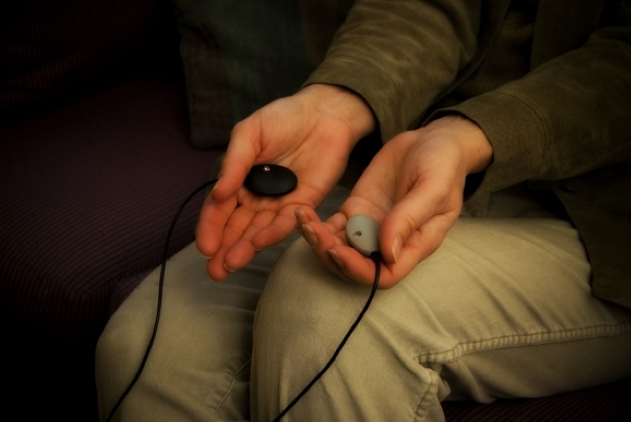The Collective
At Relational Collective, we believe that healing begins with connection. Our practice is built on the understanding that relationships whether with ourselves, our partners, our families, or our communities are at the heart of emotional well-being.
We offer therapy and coaching that goes beyond symptom management to focus on building trust, fostering emotional safety, and creating spaces for authentic connection. Our Therapists and Coaches are trained in evidence-based, relationally-oriented approaches, including EFT, EMDR, and attachment-based modalities, to support individuals, couples, and families in navigating life’s challenges and strengthening the bonds that matter most.
Rooted in warmth, collaboration, and clinical excellence, Relational Collective is more than a practice, it’s a community dedicated to helping people repair, grow, and thrive together.
Services
-
Emotion Focused Couple Therapy (EFCT) is an evidence-based approach that helps couples move beyond surface conflicts to address the emotional needs at the heart of their relationship. Rooted in attachment theory, EFCT views distress not as a sign of weakness but as a signal of disconnection. It guides partners to slow down, identify negative interaction cycles, and express the deeper fears and longings driving those patterns.
Through structured conversations and emotional exploration, couples learn to communicate vulnerably, repair ruptures, and create new patterns of safety and responsiveness. The therapeutic relationship offers a secure space where partners can take emotional risks and experience each other differently. Over time, EFCT strengthens attachment bonds, deepens trust, and fosters lasting emotional connection—allowing couples to grow together in a more secure and resilient way.
-
Individual therapy, from a relational lens, focuses on how our connections shape who we are and how we experience the world. In a safe, attuned space, clients explore patterns formed through past and present relationships, deepening self-awareness and emotional understanding. The therapeutic relationship itself becomes a healing connection—offering new experiences of trust, safety, and authenticity. This process helps clients shift relational patterns, strengthen their sense of self, and build more meaningful, secure relationships beyond the therapy room.
This therapist-client relationship becomes a collaborative, one-on-one process that helps people explore their thoughts, emotions, somatic experiences in a supportive space. Grounded in evidence-based approaches, it focuses on personal growth, emotional regulation, and healing through processing difficult experiences. Through reflection and skill-building, clients gain insight, develop healthier coping strategies, and create meaningful change in their lives.
-
EMDR (Eye Movement Desensitization and Reprocessing) Therapy is an evidence-based approach that helps people heal from trauma, distressing experiences, and negative beliefs that keep them stuck. Rather than relying solely on talk therapy, EMDR uses bilateral stimulation—such as guided eye movements, tapping, or sounds—to activate the brain’s natural healing processes. This allows painful memories to be reprocessed so they no longer carry the same emotional intensity or shape current reactions.
EMDR is grounded in safety and attunement. The therapeutic relationship provides a secure base as clients revisit difficult experiences, ensuring they are not alone in the process. By reprocessing trauma within this supportive connection, clients not only heal old wounds but also develop new, more adaptive ways of relating to themselves and others. Over time, EMDR helps individuals integrate their experiences, reduce emotional distress, and create space for deeper connection and growth.
-
Family Therapy is a collaborative, systemic approach that focuses on the family as a whole rather than isolating problems within one individual. It explores patterns of interaction, roles, communication styles, and intergenerational dynamics that shape how family members relate to one another. By understanding these patterns, families can uncover how challenges are maintained and begin to shift toward healthier ways of connecting.
Family Therapy emphasizes the power of secure, attuned relationships within the family system. Sessions provide a structured space where each member’s voice is heard and respected, fostering empathy and emotional safety. Through guided conversations, families learn new ways of communicating, repairing ruptures, and supporting one another. The goal is to strengthen bonds, build flexibility, and create a more connected, resilient family environment that nurtures growth for everyone involved.
-
Systemic & Relational Therapy is grounded in the understanding that individuals do not exist in isolation—we are shaped by our relationships, families, communities, and broader social systems. This approach looks beyond symptoms or behaviors alone, exploring the patterns, roles, and interactional dynamics that influence how people think, feel, and relate to one another. By examining these relational systems, clients gain deeper insight into how past and present connections shape their experiences and identities that have in the past brought distress..
Systemic and Relational Therapy focuses on creating new, healthier ways of engaging with others—whether in intimate partnerships, families, or broader networks. Through this collaborative process, clients develop greater emotional awareness, flexibility, and relational resilience. The aim is not just individual change, but transformation within the web of relationships that support lasting growth, healing, and connection.
-
Sex Therapy is a specialized, relational approach that helps individuals and couples explore sexual concerns in a safe, nonjudgmental space. Rather than focusing solely on performance or behavior, it addresses the emotional, relational, cultural, and psychological factors that shape sexual experiences. Therapy may focus on issues such as desire differences, sexual pain, arousal challenges, communication barriers, or the impact of trauma, always tailored to each person or couple’s unique story.
Sex Therapy recognizes that sexuality is deeply connected to trust, safety, and emotional intimacy. It provides a space to explore vulnerabilities, rewrite unhelpful narratives, and build new patterns of openness and connection. By fostering honest communication and deepening emotional bonds, clients are supported in creating more authentic, fulfilling, and connected sexual experiences—both with themselves and with their partners.







